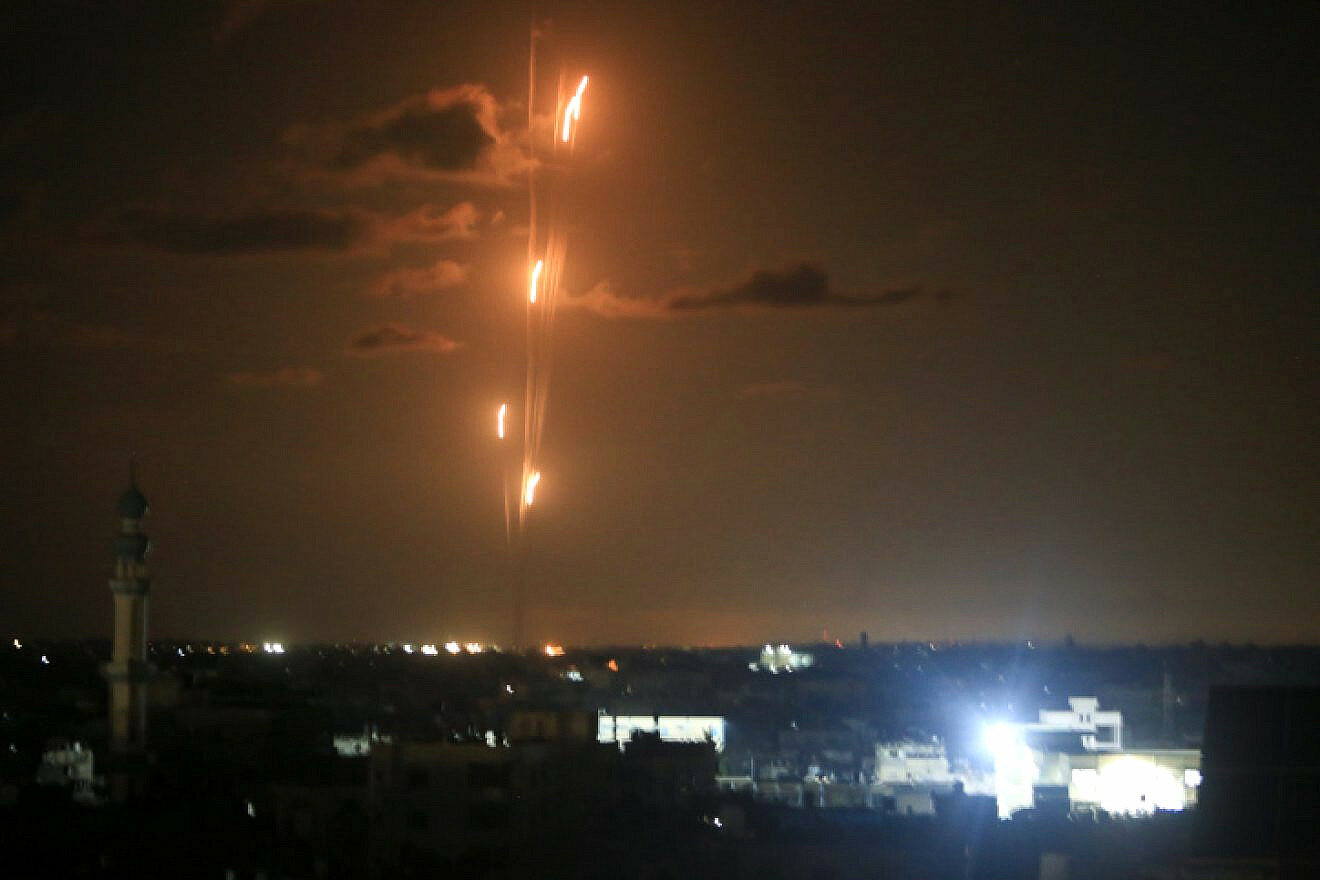3 tragedies: Even in fog of war, truth matters
A tale of three tragedies
One hopes that the offspring of travail is wisdom. If we must endure horrible things that try our faith and the limits of our emotional and physical stamina, at least, we hope, we emerge having learned things that will be valuable. It is a poor salvage, but sometimes we must realize value where we can.
Back in May of 2022, during IDF clashes with terrorists in Jenin, reporter Shireen Abu Akleh was killed. Because of her prominence and ready identity as a member of the press, there was a great rush to assign blame, with Palestinians claiming she had been shot by an Israeli soldier and Israelis claiming she had been hit by Palestinian gunmen operating in the town.
Forensic details and emerging evidence was dissected and debated. I wrote an article in The Jewish Star (Death of a journalist in Jenin: Untruths and no consequences) that set out my perspectives — colored by my admitted hopes and biases — about what the evidence showed, stating that, if I was wrong, I, along with a lot of people on the Israeli side, would be eating a particular black, non-kosher bird (crow). And we did, as several investigations concluded that Abu Akleh was likely hit by Israeli fire and the IDF admitted that, while it could not be sure based on the forensic evidence, it was likely she had been killed by an Israeli-fired bullet.
Back in September 2000, at the inception of the Second Intifada, a gun battle between Israeli troops and Palestinian forces led to the death of Muhammad al-Durrah. The image of the boy, crouched in terror behind his father, was splashed all over the media, as was the claim that Israeli forces had killed him. Israel, at first, accepted blame and issued an apology for his death. Later, after more complete forensic analysis revealed that al-Durrah was not and could not have been hit by Israeli fire, Israel retracted its acceptance of blame. But to this day Muhammad al-Durrah remains an icon of Palestinian “resistance” and the accepted — if erroneous — narrative is that he was killed in cold blood by the IDF.
• • •
So when, this week, as the war against Hamas raged in Gaza, and Israel is still reeling from the Simchat Torah Massacre on Oct. 7 (what many people in Israel are referring to as the “Black Sabbath”), the Al-Alhi Baptist Hospital was reported to have been hit by some sort of ordinance, resulting in the deaths of what was claimed to be “hundreds” of people, I held my verbal fire. I wanted to see what the evidence would show, and how Israel would respond, before launching into attacks on or defense of anyone.
Israeli authorities had too often and too recently screwed up in its initial claims in response to particularly bad events. I waited in the hope that Israel had learned from its previous ham-handed, rushed efforts to cover its tachat, and that its investigation would be both swift and, excuse the pun, bullet-proof.
Unfortunately, others were not as cautious.
Of course, Hamas and the Palestinian Authority and their henchmen immediately claimed that Israel had deliberately struck the hospital, killing hundreds of doctors, nurses and patients – i.e., that the Jewish state had targeted one of the few places where Gazan civilians believed they could find a safe haven. People online started posting videos of failed rocket launches or Israeli strikes purportedly showing the Al-Alhi strike, which turned out to be false or reflected other incidents. And, unfortunately — I cannot say incredibly — many in the media jumped on that loaded bandwagon.
A BBC reporter, reporting almost immediately after the strike (before any actual evidence was in) boldly and baselessly stated: “It’s hard to see what else this could be really, given the size of the explosion, other than an Israeli airstrike or several airstrikes.” The BBC followed with a story headlined, “Hundreds feared dead or injured in Israeli air strike on hospital in Gaza, Palestinian officials say.”
Reuters led with a headline that, “An Israeli air strike killed hundreds of Palestinians at a Gaza City hospital crammed with patients and displaced people,” although, like the BBC, it tepidly qualified that “health authorities in the besieged enclave” made that claim. And the New York Times, the “Gray Lady” that purportedly reports “all the news that’s fit to print,” led with its own bitter eye-candy: “Breaking News: An Israeli airstrike hit a Gaza hospital on Tuesday, killing at least 200 Palestinians, according to the Palestinian Health Ministry, which said the number of casualties was expected to rise.”
The Wall Street Journal (whose editorial page has been refreshingly supportive of Israel’s fight against an ISIS-like enemy), the Los Angeles Times, Al Jazeera (naturally), all joined in on the pile-on. The list is long, exasperatingly so. Those media organizations took the word of a terrorist group — that for months planned an attack deliberately targeting civilians, in which women were raped, infants were shot in their cribs, entire families were tortured and executed, concertgoers were slaughtered, people were burned alive and beheaded and hundreds taken hostage — as gospel. And of course the world exploded in yet more fury directed at Israel and Jews worldwide (a ripple-effect that is still spreading).
• • •
But this time Israel got its response right. It marshalled the evidence (and there is plenty) and within hours presented it cogently, coherently and convincingly to show that the strike at Al-Alhi was definitely not from Israeli ordinance and was instead from a rocket fired within Gaza that fell short, in the parking lot adjacent to the hospital (giving lie to perhaps the central part of the narrative — that the hospital itself was targeted and hit).
Video evidence (recorded, paradoxically, by Al Jazeera), showed a rocket launch from Gaza gone awry, falling and hitting what was determined by geolocation to be the site of the Al-Alhi blast. Intercepted audio showed two Gazan operatives (Hamas or Islamic Jihad) discussing the fallen rocket, including that shrapnel from the projectile did not match Israeli ordinance and that Islamic Jihad had been firing missiles from a cemetery located near the hospital.
Satellite footage showed launches of rockets right over the hospital’s path. And footage from the ground showed a tiny impact crater, some burned out cars and blown out windows in adjacent buildings — the kinds of things that would result from the explosion of a relatively small projectile still carrying much of its rocket fuel. An Israeli JDAM would have left a huge impact crater and likely caused extensive structural damage to nearby buildings, which did not happen here (and, of course, if Israel intended to hit a building the size of Al-Alhi hospital — which its operational restrictions do not allow — its precision-guided munitions would not have missed it and would likely have destroyed it).
Several of the news organizations that rushed to lay the blame on Israel have since rerouted, even if they have not recanted with a complete mea culpa.
The BBC, for example, has begrudgingly admitted that experts it spoke to have concluded, like Israel did, that it is likely that an Islamic Jihad rocket aimed at Israel fell short and struck the hospital compound and that the evidence is inconsistent with an Israeli strike.
• • •
Too late, these media have realized their rush to judgment and are now reporting what the evidence actually shows. They had little choice, as the evidence presented thus far all leads toward one conclusion and the Palestinians and their supporters (including some of the more malignant members of the United States House of Representatives) have provided nothing more than ipse dixit rhetoric to substantiate their version of events.
President Biden’s wartime visit to Israel, at which he publicly stated that American intelligence supports the Israeli version of events, helped a great deal. Yet the fires of reckless, hasty, knee-jerk, “blame Israel” reporting continue to burn in cities throughout the world.
The deaths of civilians at the Al-Alhi hospital, and other places in Gaza, give me no joy. But I have the relief of knowing that Israel has, perhaps, at least gained some wisdom from its prior travails.










